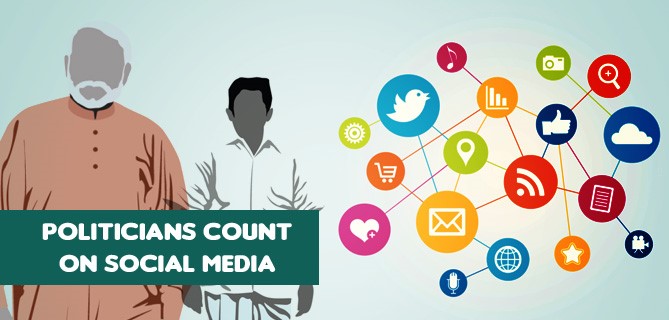Social media has emerged as the go-to platform for news, political discourse, and social interactions in today’s lightning-fast information age. We aim to explore how social media affects elections, sways public opinion, and changes the way we interact at Our National Conversation.
The Surge of Social Media as a News Source
Social media has transformed over the last 10 years or so from a tool for private sharing to a significant news hub. Platforms like Facebook, Twitter, and Instagram, which have billions of users globally, now significantly influence how we get information. Social media has evolved into a dynamic news source as a result of the simplicity of sharing and the manner that material spreads online.
The Good Side: People are more informed of world happenings thanks to social media’s rapid news dissemination. It has given average people the ability to record and share news, frequently in real-time. Anyone can now contribute to the news, enabling voices that might not otherwise be heard.
The Challenge: The Issue This fast-paced news cycle, however, also brings issues such as the spread of misleading information and the emergence of echo chambers. These “echo chambers” occur when people only hear or read things that confirm their existing beliefs. This complicates efforts to keep the media free from bias.
The Impact on Political Conversations
The influence of social media on political debate has been substantial. It facilitates communication between representatives and their constituents, increasing both accountability and openness. In addition, it has helped spread campaigns for social and political change, such as #MeToo and #BlackLivesMatter.
The Good Side: Social media may bring visibility to underrepresented voices and make public officials answerable for their actions. It’s a great way to get people off their couches and into the political process.
The Challenge: However, it has also aided in the spread of cyberbullying and “cancel culture.” Polarized disputes are common in online political conversations, making it difficult to reach a consensus and creating a hostile climate.
Influencing Elections and Voter Engagement
Elections are significantly impacted by social media. Developing a social media presence and online advertising are costly endeavors for political campaigns.
The Good Side: Social media platforms allow candidates to connect with voters directly, share their platform with voters, and solicit contributions from a wider audience.
The Challenge: The problem, however, is that it also gives rise to worries about foreign involvement, the proliferation of misleading information, and the possibility of manipulating voters through targeted marketing. Do you recall the 2018 controversy involving Cambridge Analytica? It proved the power of social media to sway public opinion, highlighting the requirement for more regulations and greater transparency in political advertising.
Striving for Fair and Unbiased News
Searching for unbiased news is more vital than ever in the internet age, where views sometimes outweigh facts. The mission of Our National Conversation is to research ways to use social media to spread factual information and stimulate meaningful discussion across the country.
Promoting Reliable News Sources: As a means of promoting trustworthy news sources, social media platforms can work in tandem with established media outlets to feature their reporting. Users may get balanced and well-researched news if articles from these sources are prioritized.
Fact-Checking and Dispute Resolution: Platforms can buy fact-checking and conflict resolution tools. These kinds of systems can be used to fight false information and check claims. To build trust in content management, you have to be open and honest about how you make decisions.
Media Literacy:Consumers need to be taught how to think critically and understand how the media works. Everyone will be able to make better decisions if there are ways to help them find their way through the internet’s ocean of knowledge.
Conclusion
In the end, social media have a big and long-lasting effect on politics and culture. Technology has made it easier to get involved in politics and get information, but it has also brought new risks, such as the spread of false information, more division, and the chance that public opinion could be manipulated. The goal of Our National Conversation is to use social media to help people have educated debates and get unbiased news coverage. We do this by encouraging people to talk about these problems in depth. If these problems are solved and the benefits of social media are taken advantage of, it’s possible that the digital world will be better managed and that society will be better informed and more involved.








